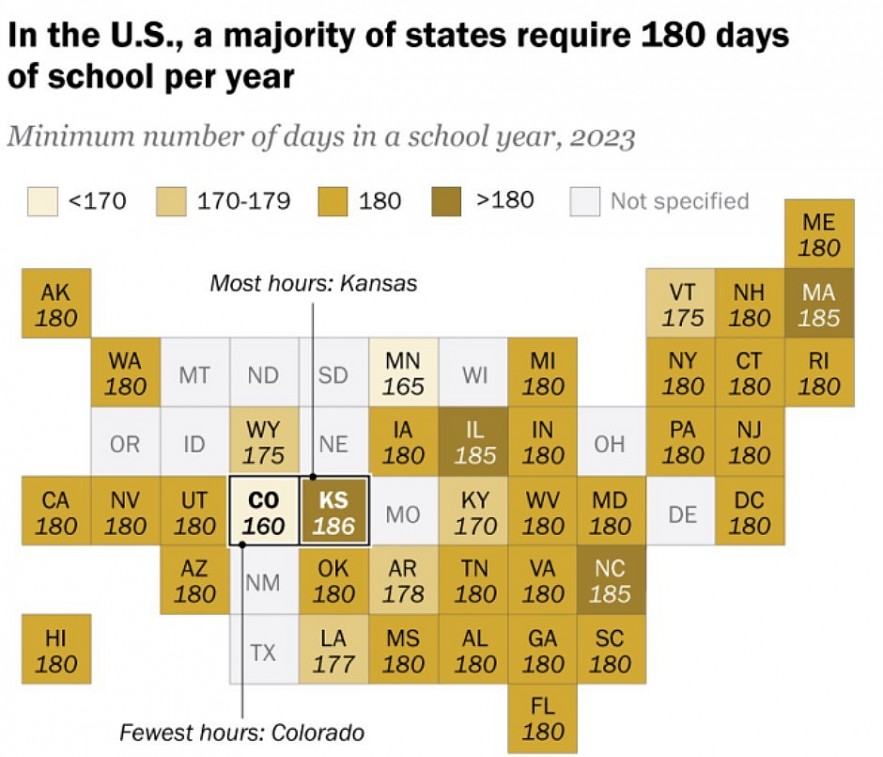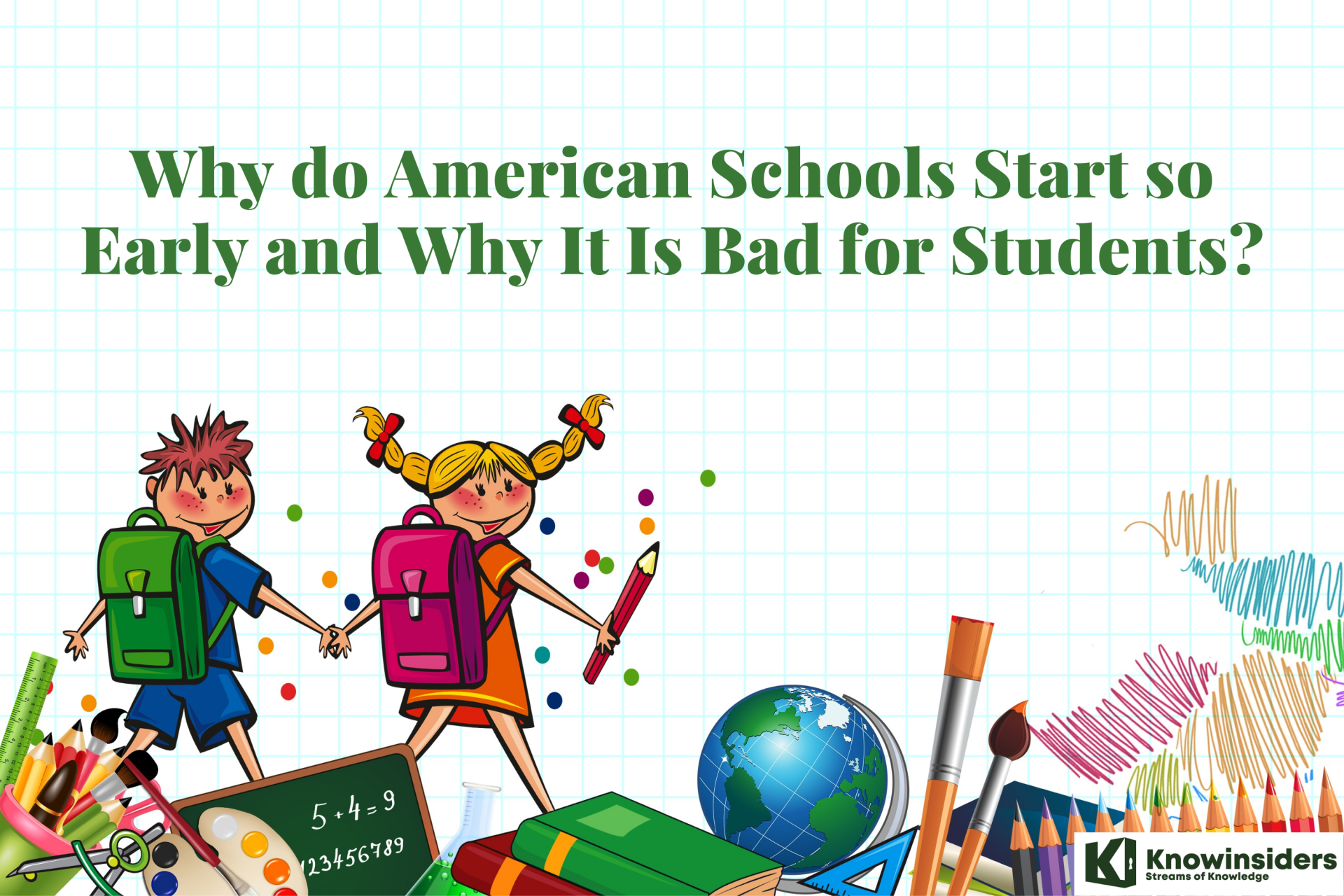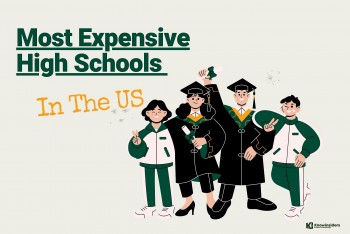2024-25 School Year Calendar in the United States - School Days Per Year
An Overview of US School Days Per Year
 |
| School Days Per Year in the U.S - Source: PEW |
In the U.S., most schools are open 180 days a year, but each state sets its own school day length.
For most people in the US, school has begun. A study by the Pew Research Center using data from the Education Commission of the States found that K–12 public schools will be open for about 180 days this year.
There are, however, big differences between states in how much schooling kids get and even what a day of school looks like. This is true for many aspects of public education.
There are rules in each state about how long school has to be open at least. The minimum is usually a mix of days and hours per year and hours per day. State laws also say how much, if any, non-teaching time, like lunch, recess, and class changes, can count toward those minimums. Unless they get a waiver, each district sets its own calendars based on the rules that apply to the whole state.
Most of the time, states control school time by setting a minimum number of days for the school year. This is what 38 states and the District of Columbia do. Along with D.C., most of those states (27 of 38) require 180 school days, which is the closest thing the country has to a national standard.
Learn more: 2024/2025 US School Holidays: Full List of Dates, Federal and State Calendar
 |
| U.S School Year Calendar in 2024-2025 |
Full List of U.S School Days in 2024/2025
September 2024
5 (Thursday) – First day of school
12 (Thursday Evening) – Parent-Teacher Conferences for elementary schools and Pre-K Centers
19 (Thursday Evening) – Parent-Teacher Conferences for middle schools and D75 schools
26 (Thursday Evening) – Parent-Teacher Conferences for high schools, K–12, and 6–12 schools
Top 5 States With The Longest School Days
October 2024
3–4 (Thursday to Friday) – Rosh Hashanah, schools closed
14 (Monday) – Italian Heritage/Indigenous Peoples' Day, schools closed
November 2024
1 (Friday) – Diwali, schools closed
5 (Tuesday) – Election Day, students do not attend school
7 (Thursday Afternoon and Evening) – Parent-Teacher Conferences for elementary schools; students in these schools dismissed three hours early
11 (Monday) – Veterans Day, schools closed
14 (Thursday Afternoon and Evening) – Parent-Teacher Conferences for middle schools and D75 schools; students in these schools dismissed three hours early
21 (Thursday Evening) – Parent-Teacher Conferences for high schools, K–12, and 6–12 schools
22 (Friday Afternoon and Evening) – Parent-Teacher Conferences for high schools, K–12, and 6–12 schools; students in these schools dismissed three hours early
28–29 (Thursday to Friday) – Thanksgiving Recess, schools closed
National Holidays in the United States:
December 2024
24 – January 1 (Tuesday to Wednesday) – Winter Recess, schools closed
January 2025
20 (Monday) – Rev. Dr. Martin Luther King Jr. Day, schools closed
21–24 (Tuesday to Friday) – Regents Administration
27 – Professional Development Day; no classes for students attending high schools and 6–12 schools, all other students attend school
28 – Spring Semester begins
29 (Wednesday) – Lunar New Year, schools closed
Learn more: US Calendar 2025 - Full List of Public Holidays And Observances: Dates and Celebrations
February 2025
17 – 21 (Monday to Friday) – Midwinter Recess, schools closed
March 2025
6 (Thursday Afternoon and Evening) – Parent-Teacher Conferences for elementary schools and preschool Centers; students in these schools dismissed three hours early
13 (Thursday Afternoon and Evening) – Parent-Teacher Conferences for middle schools and D75 schools, students in these schools dismissed three hours early
20 (Thursday Evening) – Parent-Teacher Conferences for high schools, K–12, and 6–12 schools
21 (Friday Afternoon) – Parent-Teacher Conferences for high schools, K–12, and 6–12 schools; students in these schools dismissed three hours early
31 (Monday) – Eid al-Fitr, schools closed
April 2025
14 – 18 (Monday to Friday) – Spring Recess, schools closed
May 2025
1 (Thursday Evening) – Parent-Teacher Conferences for elementary schools and Pre-K Centers
8 (Thursday Evening) – Parent-Teacher Conferences for middle schools and D75 schools
15 (Thursday Evening) – Parent-Teacher Conferences for high schools, K–12, and 6–12 schools
16 (Friday Afternoon) – Parent-Teacher Conferences for high schools, K–12, and 6–12 schools
26 (Monday) – Memorial Day, schools closed
June 2025
5 (Thursday) – Eid al-Adha / Anniversary Day; schools closed
6 (Friday) – Clerical Day; no classes for students attending 3-K, PreK, elementary schools, middle schools, K–12 schools, and standalone D75 programs
TBD – Regents Administration
19 (Thursday) – Juneteenth, schools closed
26 (Thursday) – Last day of school for students
FAQs
Which states require the fewest school days? The most?
It takes at least 180 days in seven states, with 160 days in Colorado being the shortest. There are four states that need more than 180 days, with Kansas being the first. In the Sunflower State, kids from kindergarten to 11th grade have to go to school 186 days a year or 181 days a year. In the states that have one, the average length of time needed is 179 days.
For a long time, a school year with at least 180 days has been the norm. A report from 1992 from the National Center for Education Statistics says that in August 1989, 33 states and D.C. had 180-day requirements. Indiana had the most school days that year (182), while 12 states had the fewest. The other states either didn't have a minimum number of days or set a range between 175 and 180 days.
How many hours in a school day – or a school year?
In addition to days, states can limit school hours by requiring a certain number of hours or minutes per year. 39 states have these laws or rules, according to the Education Commission of the States. In fact, some states let districts choose between days or time per year minimums. Oklahoma school districts can have 180 regular school days, or 1,080 hours over 165 days.
Most states (26 of 39) have grade-based annual time minimums. Fourth graders in South Dakota must attend school 875 hours a year, while eighth graders must attend 962.5.
In all states with minimum hours, fourth graders work 997.8 hours per year. Arizona 11th graders must work 720 hours (including lunch) per year. They must work 1,260 hours in Texas, but minutes are required. In 39 states with one, 11th graders work 1,034.8 hours per year.
Another option is requiring a certain number of school hours or minutes. This is done by 29 states and DC. Each grade level has different rules in 16 states. Pennsylvania requires kindergarten, first through eighth grade, and ninth through twelfth grade days to be at least 2.5, 5, and 5.5 hours, respectively.
Eighth graders' school days can be three or 6.5 hours in some states. New Hampshire and Oregon limit school days, which is intriguing. Oregon allows 8 hours and New Hampshire 6 hours for eighth graders. Lunch, recess, and other non-classroom time are counted differently in all 50 states.
Texas is unique because it only requires 75,600 educational minutes, or 1,260 hours (including breaks and lunch). Districts decide how to use those minutes after that.
However, Texas used to require schools to be open 7 hours a day, including breaks, lunch, and non-teaching time. If school districts follow that old rule, the Texas school year would last 180 days.































